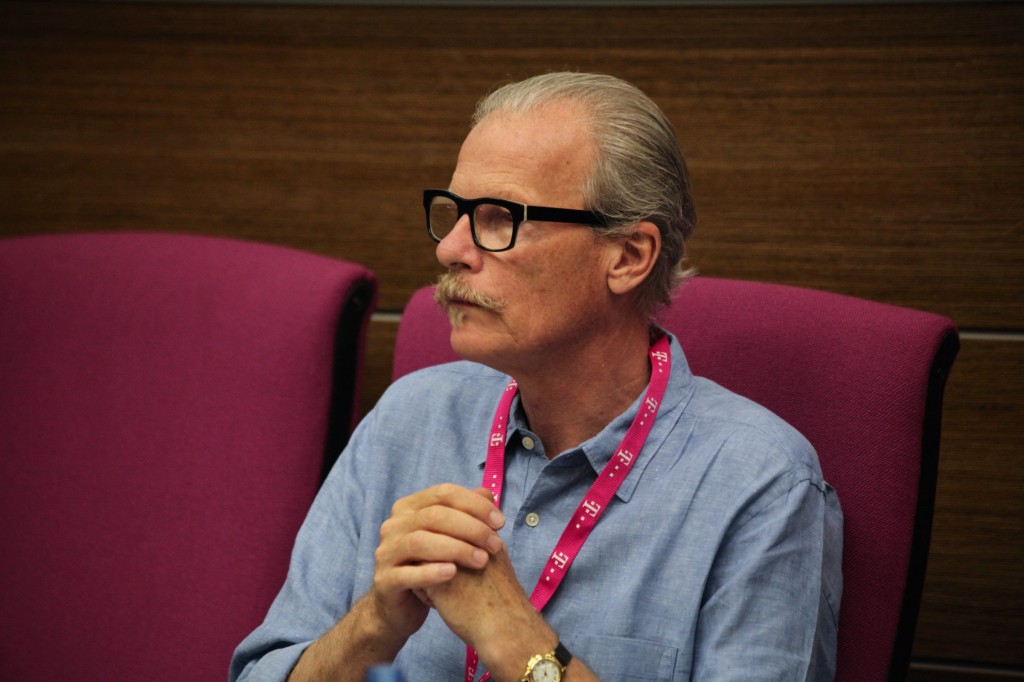Thursday | 24. July. 2014
PULA PRO: Charles McDonald on Festival Publicity

‘It’s important to make an appropriate first impression. It is important to determine the desired tone from the start. It’s important to have a good relationship with the director and the actors,’ these are some of the basic elements that a person responsible for PR and film’s positioning in the media has to stick to according to British PR expert Charles McDonald who held the lecture ‘Unit Publicity and Festival Positioning’ at the Chamber of Economy on Wednesday, as part of the Pula PRO industrial programme of this year’s Pula Film Festival.
After he had headed small film PR companies for several decades, a few years ago McDonald became a freelancer who for each specific job forms a team of selected individuals whose temporary association can satisfy the needs of a film’s PR. Because every film is specific and this approach, he thinks, is much better than having a permanent team for all variations.
A collaborator of many renowned directors such as Ken Loach, Michael Winterbottom, Stephen Frears, David Cronenberg, Pedro Almodovar or Mike Leigh, McDonald talked about two independent and yet connected fields of work: unit publicity and festival positioning.
A publicity strategy should be, as he said, developed as soon as possible, already in the preparation phase of film production so as to agree on the manner and the quantity of media presence on the film set with producers, but also with directors and actors – who are very often not willing to communicate with journalists during the shooting phase, because it interferes with their performance. Because there is no publicity without the media.
It is extremely important to transmit the desired image of the film already in the first media placement. Otherwise, it is hard or impossible to fix it later. Fighting with paparazzis, whose photographs are usually not in consistence with a film’s image, is also one of the key elements.
So in the production phase, media engagement is not so much important because of potential spectators, who will not have a chance to see the film for another year anyway, as because one wants to issue a warning to distributors, cinemas, festivals. In that sense, the most important thing is to publish texts (with best possible photographs!) in three most important film magazines: Screen International, The Hollywood Reporter and Variety.
It is great, said McDonald, that at this year’s Pula fest we have representatives of all the three mentioned publications – Catherine Wendy Mitchell, Nick Holdsworth and Leo Barraclough – who will surely write something on the Pula Film Festival, thus giving it certain international recognition.
Festival positioning is a different story linked to the previous one. At most important festivals – these being, considers McDonals, Cannes, Venice, Berlin and Toronto, that are at the same time the most potent publicity springboards, one has to think of ways to draw attention to his film among hundreds of films being presented there. It is important to ensure that news and stories about the film reach influential media of the countries that have not yet bought the rights to present the film. Interestingly, sometimes it is better for the film to be screened in one of the sidebar programmes than in the main competition programme. Because journalists, or film critics, says McDonald, tend to undermine the main programme and ‘discover’ a gem from the sidebar one. Winning the main prize cannot harm the film but it definitely does not guarantee later commercial success.


